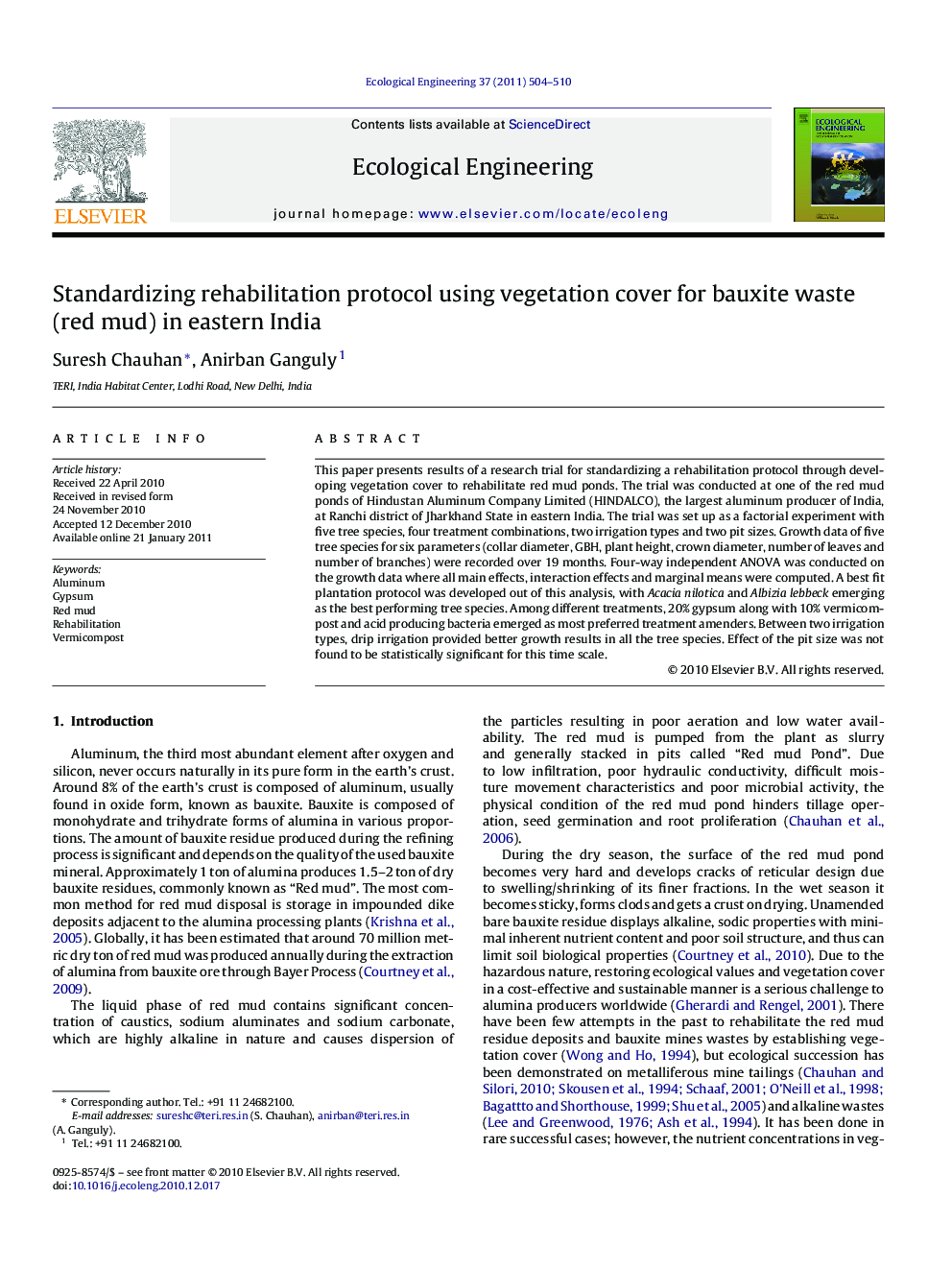| Article ID | Journal | Published Year | Pages | File Type |
|---|---|---|---|---|
| 4390231 | Ecological Engineering | 2011 | 7 Pages |
This paper presents results of a research trial for standardizing a rehabilitation protocol through developing vegetation cover to rehabilitate red mud ponds. The trial was conducted at one of the red mud ponds of Hindustan Aluminum Company Limited (HINDALCO), the largest aluminum producer of India, at Ranchi district of Jharkhand State in eastern India. The trial was set up as a factorial experiment with five tree species, four treatment combinations, two irrigation types and two pit sizes. Growth data of five tree species for six parameters (collar diameter, GBH, plant height, crown diameter, number of leaves and number of branches) were recorded over 19 months. Four-way independent ANOVA was conducted on the growth data where all main effects, interaction effects and marginal means were computed. A best fit plantation protocol was developed out of this analysis, with Acacia nilotica and Albizia lebbeck emerging as the best performing tree species. Among different treatments, 20% gypsum along with 10% vermicompost and acid producing bacteria emerged as most preferred treatment amenders. Between two irrigation types, drip irrigation provided better growth results in all the tree species. Effect of the pit size was not found to be statistically significant for this time scale.
